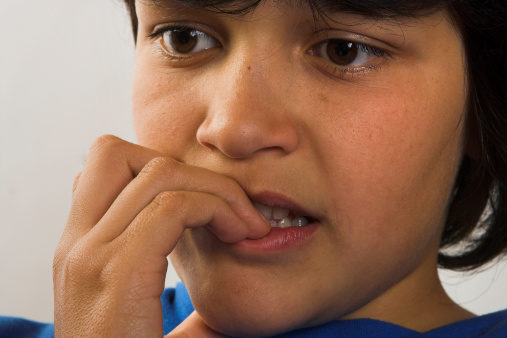Abuse Resources
David Kolko, Ph.D., University of Pittsburgh
Adherence to Treatment
Michael Rapoff, Ph.D., University of Kansas
In this overview, Dr. Michael Rapoff provides a summary of the assessment tools used to measure adherence to medication regimens. In addition, Dr. Rapoff discusses the consequences to nonadherence and barriers that families and children face in following medication regimens. He also discusses the evidence based for educational, organizational and behavioral adherence strategies.
Michael Rapoff, Ph.D., University of Kansas
John Lochman, Ph.D., University of Alabama
Dr. Lochman describes the research supporting his group-based program for children with aggression problems. He and Dr. Boxmeyer give a session by session review of how to conduct each session. They also demonstrate techniques for Coping Power using case examples, videos, and role-plays. Lastly, he describes how to implement the parent component of Coping Power.
Hill Walker, Ph.D., ABPP., University of Oregon
Annemieke Golly, Ph.D., University of Oregon
John Paul Abner, Ph.D., ABPP., Milligan College
Daniel Bagner, Ph.D., Florida International University
Rhea Chase, Ph.D., Duke Unversity
Melanie Fernandez, Ph.D., ABPP., Child Mind Institute
Melanie Nelson, Ph.D., University of Oklahoma
In this workshop, the PCIT master trainers describe parent-child interaction therapy, a type of therapy that helps to improve the parent-child relationship and increase healthy patterns of interactions between parents and children. The trainers describe how to determine if a parent and child are good candidates for PCIT. In addition, through case examples, role-plays and discussion the trainers demonstrate the key components of PCIT.
J. Mark Eddy, Ph.D., ABPP., University of Washington
Jessica Robb, Ph.D., Florida International University
Charles E. Cunningham, Ph. D., McMaster University
In this overview, Dr. Charles Cunningham provides a description of the components common to evidence-based parenting programs. In addition, he provides an overview of the research examining the efficacy of behavioral parent training. Lastly, Dr. Cunningham discusses promising directions for the future of parenting programs.
Ken Winters, Ph.D., University of Minnesota
Ken Winters, Ph.D., University of Minnesota
Annette M. La Greca, Ph.D., University of Miami
Anne Marie Albano, Ph.D., ABPP, Columbia University
Anne Marie Albano, Ph.D., Columbia University
James Waxmonsky, M.D., Florida International University
Anne Marie Albano, Ph.D., Columbia University
Wendy Silverman, Ph.D., ABPP, Florida International University
Wendy Silverman, Ph.D., Florida International University
Deborah Beidel, Ph.D., University of Central Florida
Paul J. Frick, Ph.D., University of New Orleans
In this overview, Dr. Frick describes an evidence-based approach to mental health assessment. In addition, he identifies the types of measures that can support evidence-based assessment of child mental health. Lastly, he provides examples of ways to apply an evidence-based approach to assessment in the field of youth mental health.
James Waxmonsky, M.D., Florida International University
William E. Pelham, Jr., Ph.D., ABPP, Florida International University
William E. Pelham, Jr., Ph. D., ABPP., Florida International University
James Waxmonsky, M.D., Florida International University
Gregory Fabiano, Ph.D., University at Buffalo
George J. DuPaul, Ph.D, Lehigh University
Gabrielle A. Carlson, M.D., Stoney Brook University
Phil Strain, Ph.D., University of Colorado
Tristram Smith, Ph.D., University of Rochester
Connie Kasari, Ph.D., UCLA
Mary Fristad, Ph.D., ABPP, Ohio State University
Mary Fristad, Ph.D., Ohio State University
Gabrielle A. Carlson, M.D., Stoney Brook University
John F. Curry, Ph.D., ABPP, Duke University
In this overview, Dr. John Curry provides a description of the components common to evidence-based treatments for depression in adolescents. He also describes the acute and long-term effects of treatment for depression, and lastly, he provides an overview of the results from the largest clinical trials of youth depression.John Curry, Ph.D., ABPP., Duke University
Kevin Stark, Ph.D., University of Texas
Laura Mufson, Ph.D., Columbia University
Jami Young, Ph.D., Rutgers University
Robert Emery, Ph.D., University of Virginia
Robert Emery, Ph.D., University of Virginia
JoAnne Pedro-Carroll, Ph.D., University of Rochester
Leonard Bickman, Ph.D., Vanderbilt University
Susan R. Douglas, Ph.D., Vanderbilt University
William E. Pelham, Jr., Ph. D., ABPP, Florida International University
Gregory Fabiano, Ph.D., University at Buffalo
Leonard Bickman, Ph.D., Vanderbilt University
Mary McKay, Ph.D., New York University
Barbara Foorman, Ph.D., Florida State University
Christopher J. Lonigan, Ph.D., Florida State University
Obsessions and Compulsions
John Piacentini, Ph.D., ABPP, University of California, Los Angeles Semel Institute
John Piacentini, Ph.D., ABPP, University of California, Los Angeles Semel Institute
James Lock, M.D., Ph.D., Stanford School of Medicine
Daniel Le Grange, Ph.D., University of Chicago
Daniel Le Grange, Ph.D., The University of Chicago
Problems with Obesity/Overweightedness
David Janicke, Ph.D., University of Florida
In this overview, Dr. David Janicke, provides a description of the research on psychosocial treatments for obesity in children. In addition, he describes the components of evidence-based interventions for pediatric obesity and the research supporting these interventions.School Mental Health
Marc Atkins, Ph.D., University of Illinois at Chicago
Tracy Vaillancourt, Ph.D., University of Ottawa
John Lochman, Ph.D., ABPP, The University of Alabama
Anne Marie Albano, Ph.D., Columbia University
George J. DuPaul, Ph.D., Lehigh University
Cheryl King, Ph.D., ABPP, University of Michigan
Cheryl King, Ph.D., ABPP, University of Michigan
Douglas Woods, Ph.D., University of Wisconsin-Milwaukee Milwaukee
Douglas Woods, Ph.D., University of Wisconsin-Milwaukee



















